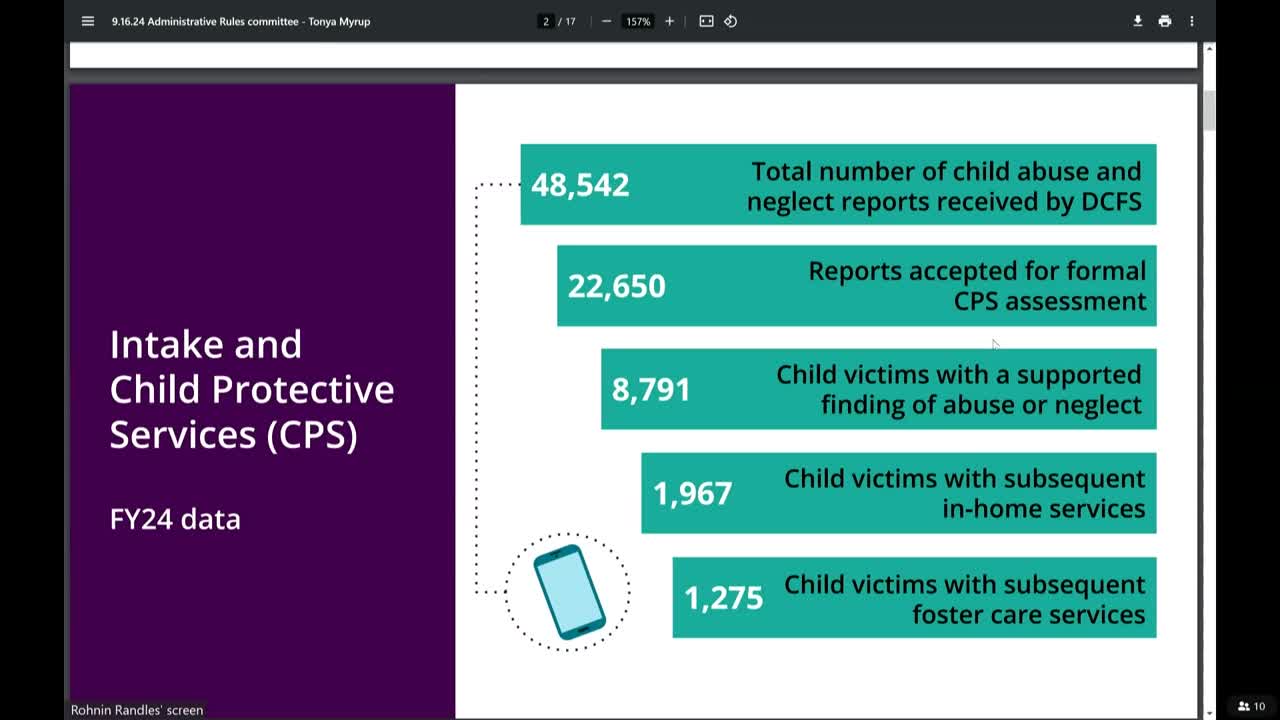Child Welfare System Faces Overwhelming Abuse Reports
September 16, 2024 | Utah Interim, Utah Legislative Branch, Utah
This article was created by AI summarizing key points discussed. AI makes mistakes, so for full details and context, please refer to the video of the full meeting. Please report any errors so we can fix them. Report an error »

In a recent government meeting, officials discussed the challenges and processes surrounding child welfare complaints, revealing significant statistics that highlight the complexities of abuse reporting and intervention. Representative Birkland raised concerns about the high number of unsubstantiated abuse reports, noting that out of 48,542 complaints, only 878 were substantiated, leaving over 39,000 calls without sufficient evidence for further action.
Officials acknowledged the importance of these calls, emphasizing that many are sincere concerns, even if they do not meet the criteria for formal investigation. They indicated that public education is crucial in guiding citizens on when to report suspected abuse, with efforts underway to inform mandatory reporters, such as teachers and law enforcement, about appropriate reporting practices.
The discussion also touched on the capacity of the system to handle incoming reports. Officials stated that while the intake system is currently managing well, they are operating at near maximum capacity. Recent staffing increases have helped alleviate some pressure, but the volume of calls remains significant.
Senator Johnson highlighted the need for clarity on what happens to calls that do not lead to formal investigations. Officials committed to providing data on referrals made to other services, such as mental health and community resources, indicating that many families in need are directed to appropriate support systems.
The meeting underscored the delicate balance between encouraging the public to report concerns and managing the resources of child welfare services effectively. Officials reiterated their commitment to continuous improvement in the system, acknowledging that while it functions well, it is not without its imperfections, and tragic outcomes can still occur.
Officials acknowledged the importance of these calls, emphasizing that many are sincere concerns, even if they do not meet the criteria for formal investigation. They indicated that public education is crucial in guiding citizens on when to report suspected abuse, with efforts underway to inform mandatory reporters, such as teachers and law enforcement, about appropriate reporting practices.
The discussion also touched on the capacity of the system to handle incoming reports. Officials stated that while the intake system is currently managing well, they are operating at near maximum capacity. Recent staffing increases have helped alleviate some pressure, but the volume of calls remains significant.
Senator Johnson highlighted the need for clarity on what happens to calls that do not lead to formal investigations. Officials committed to providing data on referrals made to other services, such as mental health and community resources, indicating that many families in need are directed to appropriate support systems.
The meeting underscored the delicate balance between encouraging the public to report concerns and managing the resources of child welfare services effectively. Officials reiterated their commitment to continuous improvement in the system, acknowledging that while it functions well, it is not without its imperfections, and tragic outcomes can still occur.
View full meeting
This article is based on a recent meeting—watch the full video and explore the complete transcript for deeper insights into the discussion.
View full meeting

